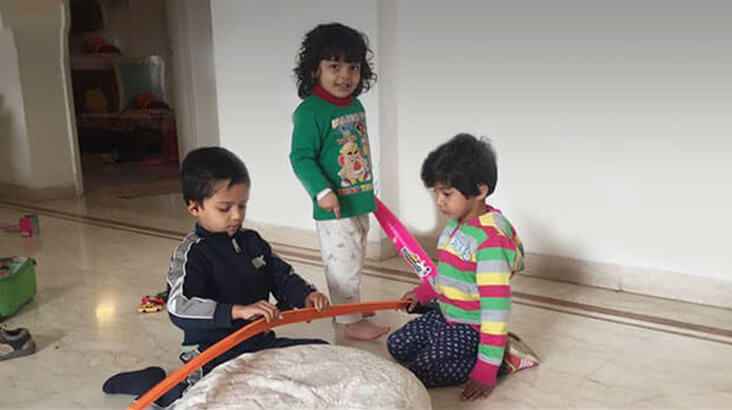If Playing be the food of life, play on!
Children pass through different stages of play during growing up, including solitary play, parallel play, associative play and then finally group play.
By the time they’re 2 or 3 years old, they become curious about their environment and the people in it. At this stage cognitive development starts taking place and kids are able to form judgements regarding who they’re familiar with and with whom they’re not. Children prefer playing alongside other children their own age but with minimum interaction, this stage of playing is called parallel play.
- Characteristics of Parallel Play
– Like to play in close quarters with each other but they don’t try to influence one another
– They try to mimic what the other one is doing or modify their play according to them
– Engage in similar activities or sometimes even completely different ones
They may seem to ignore the presence of other toddlers but if you try to split them up you’ll notice how much that contact means to them
- This early stage of child development is characterized by
– Egocentric behavior – Reluctance in sharing toys etc
– Inability to have any impulse control – So don’t be surprised if your little one pushes or lashes out at another child.
– Inability to coordinate with the activities of their companion – This does not mean that they don’t enjoy the company of other toddlers, instead they love seeing faces and bodies of sizes similar to their own.
According to research, kids do want to socialize and parents just need to be aware of some signs like pointing and squealing on seeing another child.
- Parallel play helps children develop these skills:
– Language skills
– Social skills
– Builds confidence as children are learning to play around others. T
– Makes the child aware of others’ emotions
– Motivates the child to express her feelings through her own individualised ways.
Research states that parallel play is a child’s way to cope until she feels comfortable enough to have social interactions with other familiar kids. Parallel play or solitary play is a stage toddlers pass through to learn interactive behavior and symbolic communication.
Children learn and gain experience about their world simply by playing. So, let your child, play on!
OUR TOP PICKS
- 01Best overall
- 02Best for protection
- 03Best for ease of use
- 04Best for comfort
Share:


